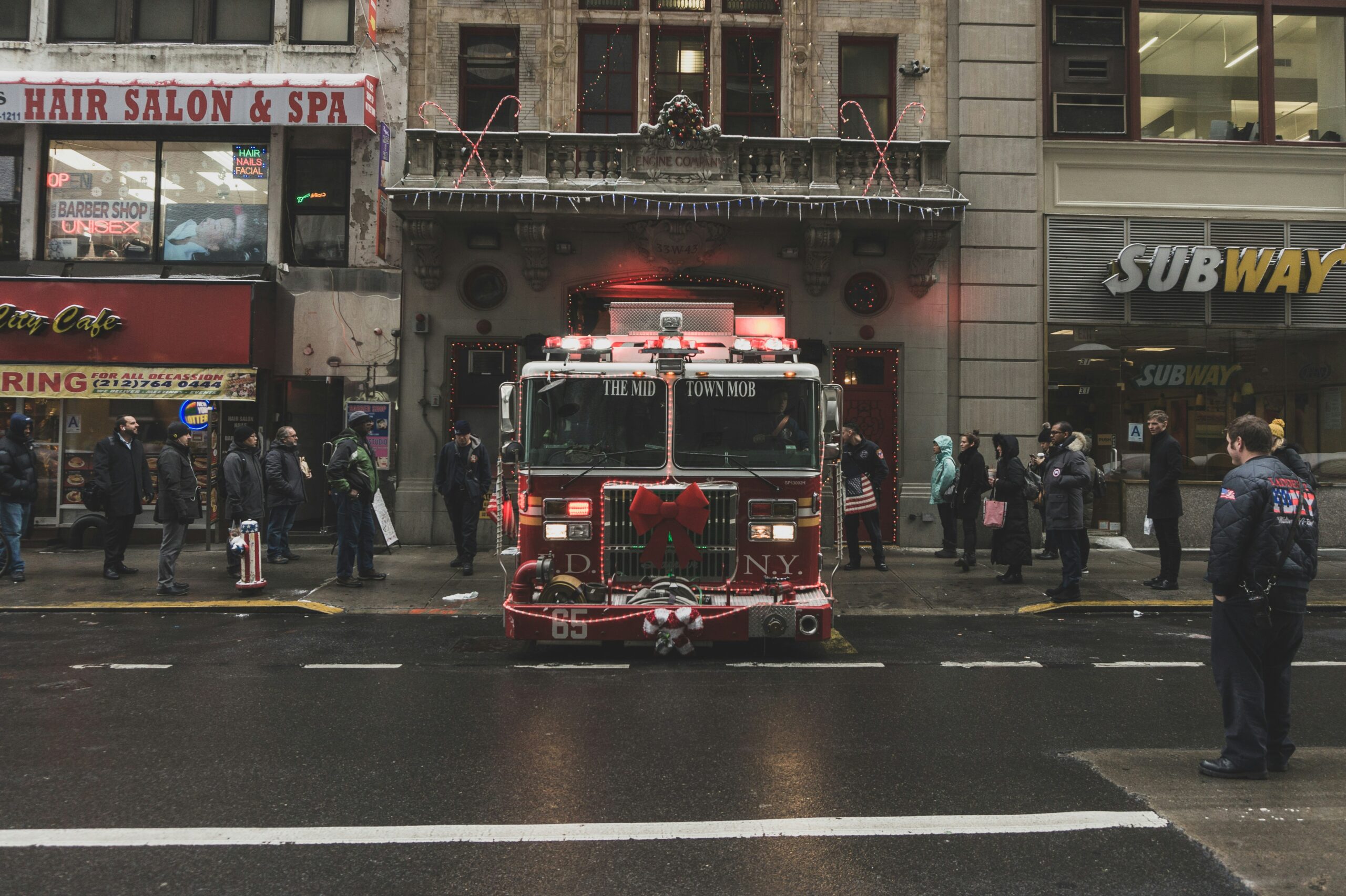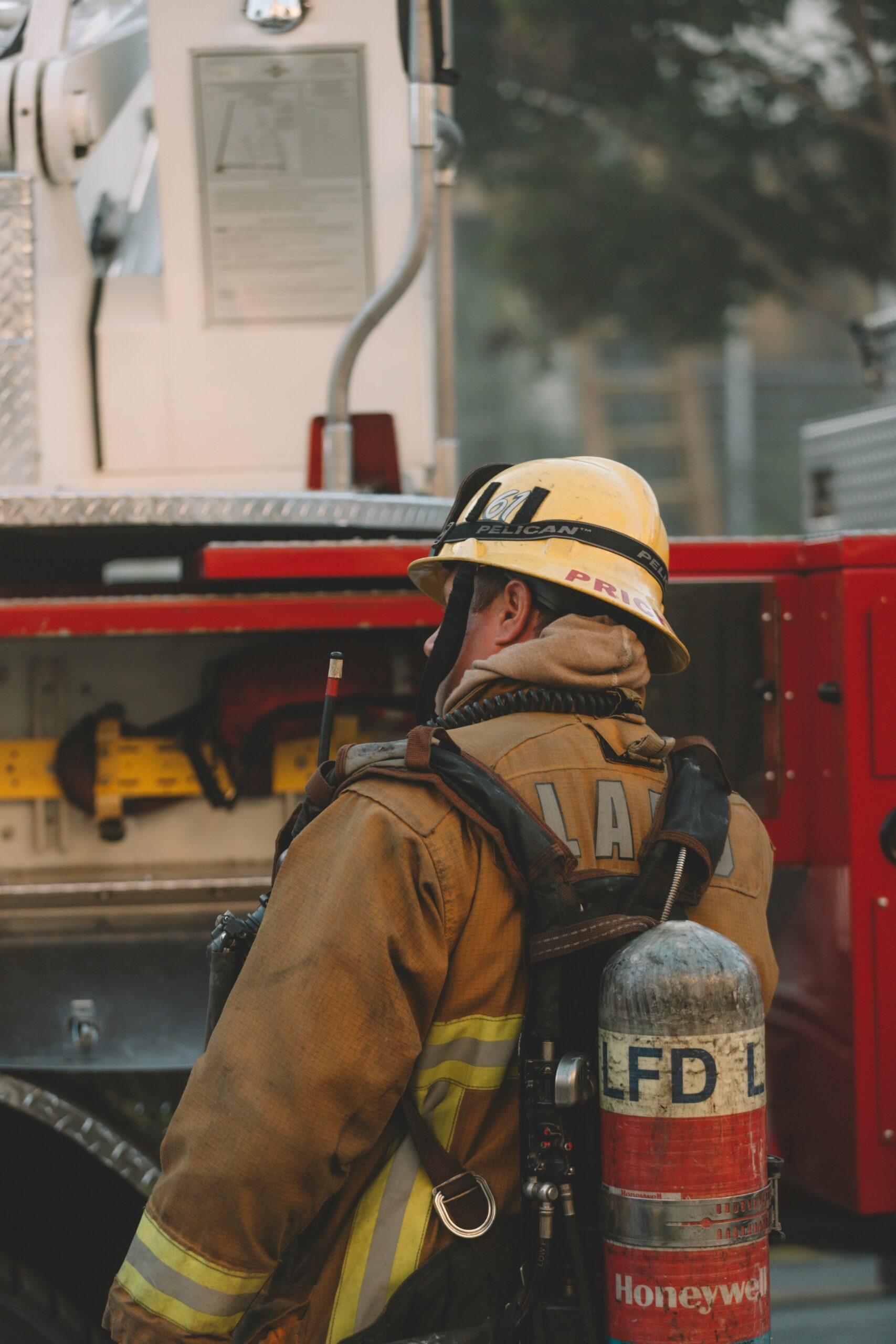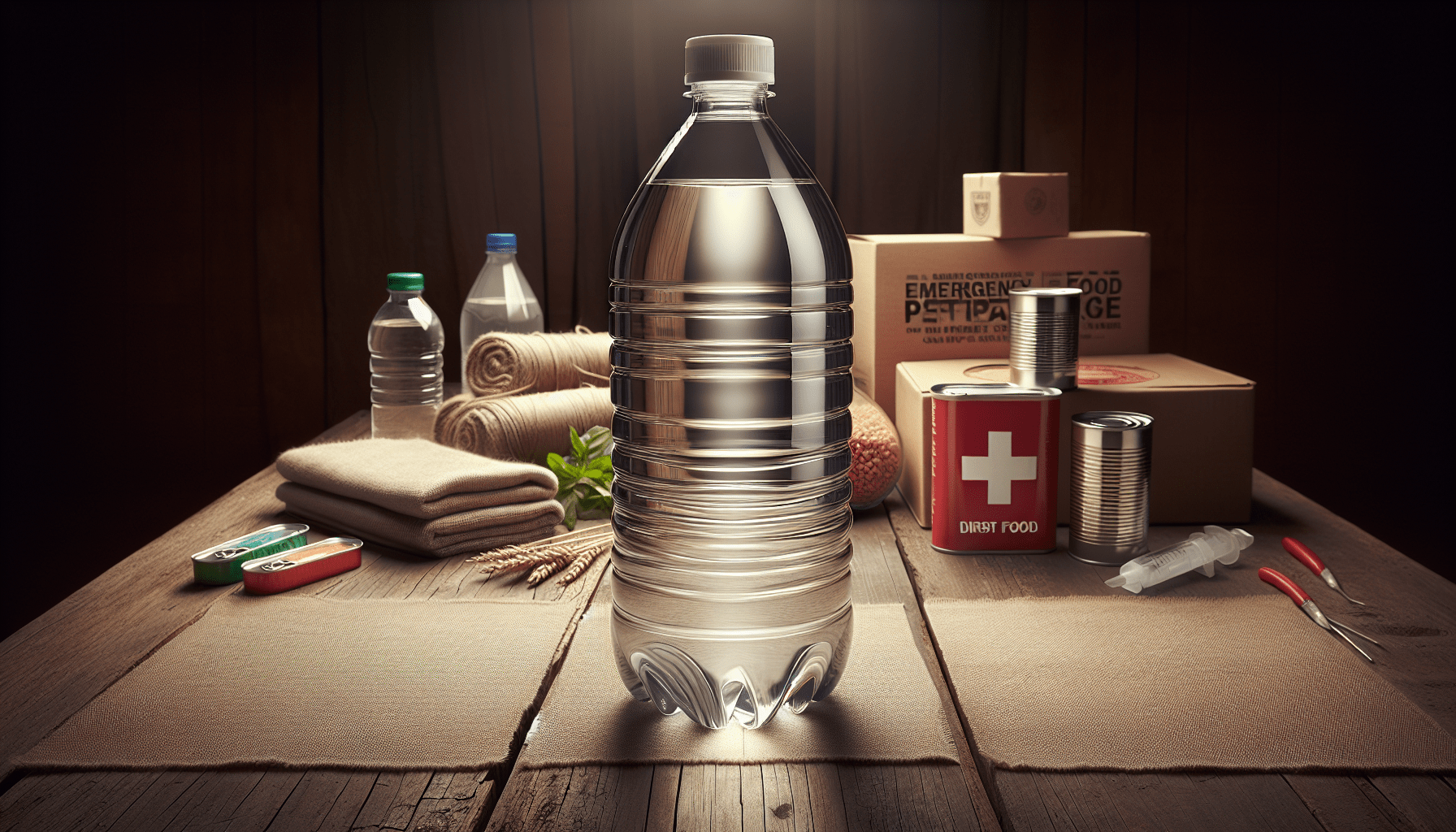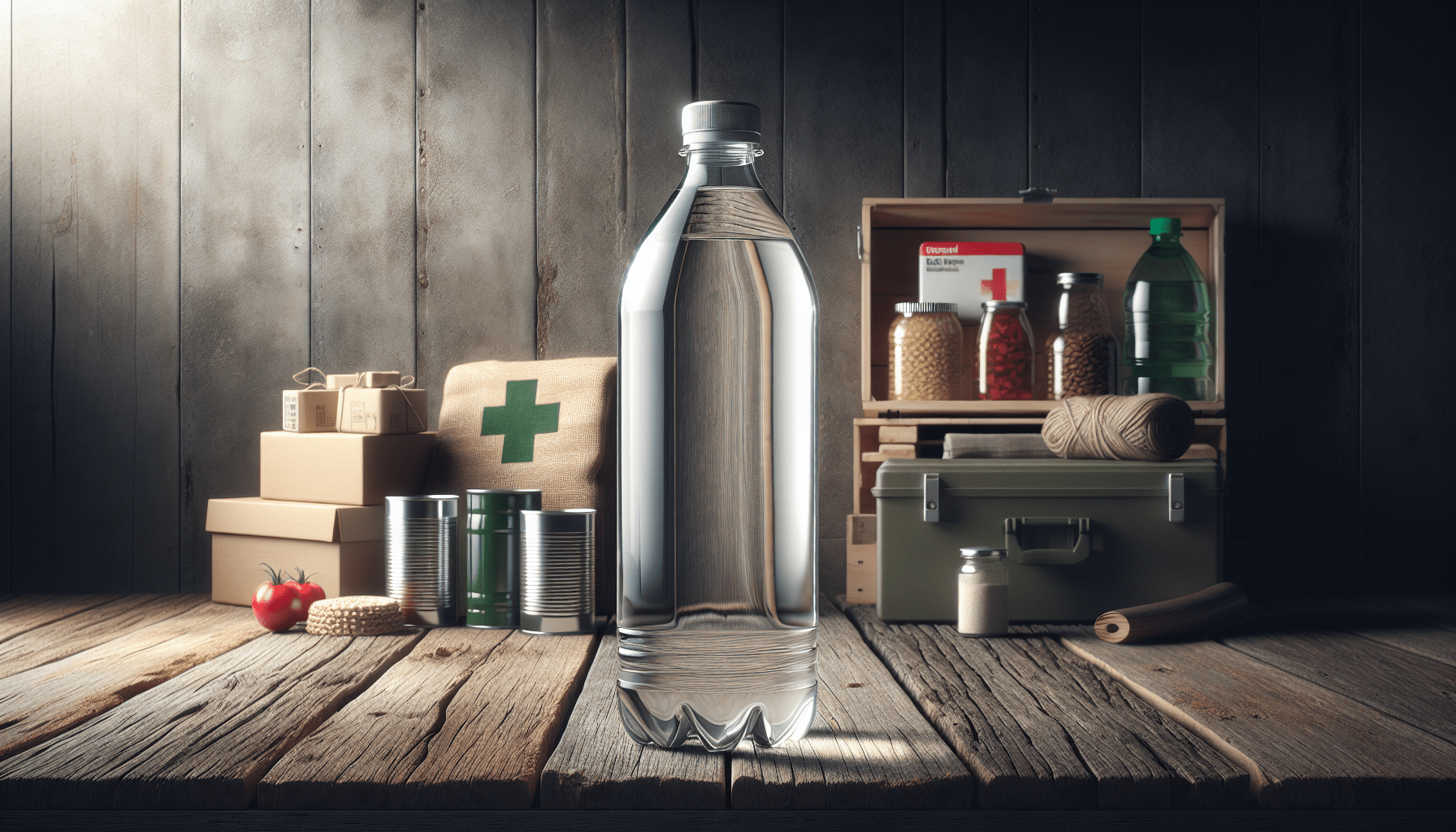Have you ever wondered about the importance of having a water supply along with emergency food? When preparing for emergencies, the primary focus often lies on stocking up on enough food to sustain you and your family. However, the necessity of having a water supply is sometimes overlooked or underestimated. Let’s delve into why maintaining a water supply is just as critical as storing emergency food, how you can do it, and what you need to consider.

Understanding Emergency Preparedness
The Basics of Emergency Preparedness
When it comes to emergency preparedness, the basics involve having enough resources to support you and your loved ones through a period of crisis. Whether it’s a natural disaster, power outage, or another emergency scenario, having a well-thought-out plan can make all the difference.
Key Elements of Preparing for Emergencies
There are a few essential elements to consider when preparing for emergencies:
- Food
- Water
- Shelter
- Medical supplies
- Safety gear
- Communication devices
While all these elements are crucial, our focus today is on the incredible importance of water.
The Necessity of Water in an Emergency
Human Body’s Dependence on Water
The human body is made up of about 60% water. This vital liquid is crucial for maintaining life and health. It helps to regulate body temperature, transport nutrients, and remove waste. Dehydration can set in quickly and lead to severe health problems much faster than a lack of food.
Why Water is as Important as Food
While food can provide the necessary calories and nutrients to keep your energy levels up, water is indispensable for bodily functions. Without an adequate water supply, your body won’t be able to digest and metabolize food properly. This imbalance can lead to severe fatigue, confusion, and even organ failure.
How Much Water Do You Need?
Daily Water Requirements
On average, an adult needs about 2 to 3 liters of water per day to maintain optimal health. This can vary depending on factors like age, climate, and physical activity.
Water Requirements During Emergencies
During emergencies, you might require more water. Factors such as higher physical exertion, stress, and environmental conditions can increase your hydration needs. It’s generally recommended to store at least 1 gallon (around 3.8 liters) of water per person per day for drinking and sanitation needs.
Calculating Your Water Supply Needs
Here’s a simple table to help you calculate the water requirements for your household:
| Number of People | Daily Water Requirement (gallons) | 7-Day Water Requirement (gallons) |
|---|---|---|
| 1 | 1 | 7 |
| 2 | 2 | 14 |
| 3 | 3 | 21 |
| 4 | 4 | 28 |
| 5 | 5 | 35 |
Storing Water for Emergencies
Types of Water Containers
There are several types of containers you can use to store water, ranging from small bottles to large tanks. Here are some options:
- Plastic Bottles: Economical and convenient but not suitable for long-term storage.
- Water Jugs: Slightly larger and better for medium-term storage.
- Water Drums: Ideal for long-term storage, hold up to 55 gallons.
- Water Tanks: Good for substantial long-term storage needs.
Water Storage Best Practices
Proper storage is crucial to ensure your water supply remains safe and drinkable:
- Clean containers thoroughly before filling.
- Store water in a cool, dark place to prevent bacterial growth.
- Rotate stored water every six months to ensure freshness.
- Use food-grade containers to avoid contamination.
Purification Methods
There are several ways to purify stored water:
- Boiling: Effective for killing bacteria and viruses.
- Water purification tablets: Convenient but can alter the taste.
- Filters: Good for removing physical contaminants and some pathogens.
- UV purifiers: Effective against bacteria and viruses but require a power source.

The Consequences of Not Having a Water Supply
Health Implications
Lack of water can lead to severe dehydration, which affects all bodily functions. Symptoms of dehydration include dizziness, fatigue, and confusion. In extreme cases, it can lead to kidney failure and other critical health problems.
Hygiene and Sanitation
Water is crucial for maintaining personal hygiene and sanitation. Without it, you’re at a higher risk of infections and diseases, which can exacerbate an already challenging situation.
Food Preparation
Some emergency foods, especially those that are freeze-dried, require the addition of water for preparation. Without water, these food supplies become less useful.
Alternative Water Sources in Emergencies
Rainwater Harvesting
You can collect rainwater using barrels or other containers. However, always purify collected rainwater before drinking.
Natural Water Sources
In some scenarios, you may have to rely on rivers, lakes, or streams. Carry a portable water filter to ensure these sources are safe to drink from.
Desalination Methods
If you’re near the sea, desalinating seawater can be an option, though it’s often resource-intensive and not practical for most.

Balancing Water Supply and Emergency Food
Complementary Role of Water and Food
Water and food work together to keep you healthy. While food provides the nutrients and energy, water aids in digestion and nutrient transport.
Storage Space Considerations
One of the challenges is balancing the storage space for both food and water. Given that water takes up significant space, plan your storage efficiently:
| Item Type | Typical Size | Duration of Use | Storage Tips |
|---|---|---|---|
| Canned Food | Small to Medium | Several years | Stackable, store in cool, dry areas |
| Water | Large Containers | Few days/weeks | Use sturdy, food-grade containers |
Prioritizing Essentials
When space is limited, prioritize essential items that provide balanced nutrition and hydration. Combining high-nutrient food with an adequate water supply will keep you well-prepared.
Tips for Efficient Emergency Preparation
Create a Checklist
Having a checklist can help ensure you don’t miss any essentials. Your list should include both food and water, along with items like medical supplies, clothing, and tools.
Regularly Update Your Supplies
Set reminders to check and rotate your emergency supplies. This way, you ensure everything remains in good condition and ready for use when needed.
Involve the Whole Family
Preparing for emergencies should be a family activity. Ensure everyone understands the importance of each item, including water, and knows how to use and locate them.

Common Myths About Water and Emergency Preparedness
Myth 1: “I only need food; the authorities will provide water.”
While there may be disaster relief efforts, you can’t always rely on external sources for your immediate needs. Preparing your own water supply ensures immediate availability.
Myth 2: “Any container will do for storing water.”
Using non-food-grade containers can lead to contamination. Always use verified, safe storage options.
Myth 3: “I can always boil water if I run out.”
While boiling is effective, it requires a heat source and may not be practical in every emergency scenario.
Conclusion: Is It Necessary to Have a Water Supply Along With Emergency Food?
The importance of having a water supply along with emergency food cannot be overstated. Your body needs water to function properly, and in any emergency, maintaining hydration is paramount. By keeping a well-balanced emergency kit that includes both food and water, you ensure you’re prepared for any situation.
The necessity extends beyond just sustenance; it affects hygiene, food preparation, and overall health. Understanding your needs and planning accordingly can make a world of difference in ensuring safety and well-being during unexpected events. So, what steps will you take to ensure you and your family are well-prepared?
Preparing for emergencies is about safeguarding your future. By taking the time now to adequately stock both food and water, you are making a critical investment in your safety and peace of mind.


